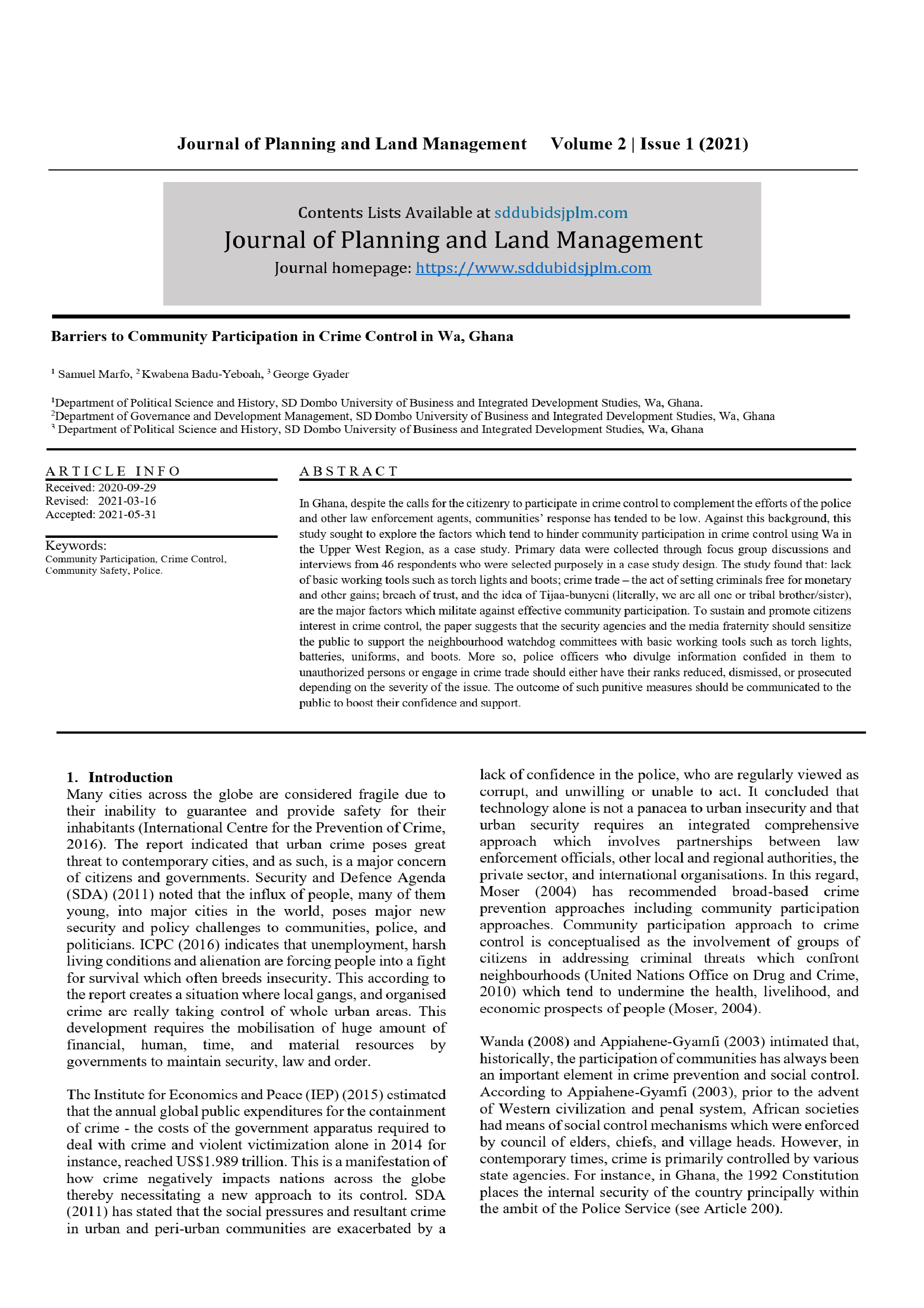Barriers to Community Participation in Crime Control in Wa, Ghana
Keywords:
Community Participation, Crime Control, Community Safety, PoliceAbstract
In Ghana, despite the calls for the citizenry to participate in crime control to complement the efforts of the police and other law enforcement agents, communities’ response has tended to be low. Against this background, this study sought to explore the factors which tend to hinder community participation in crime control using Wa in the Upper West Region, as a case study. Primary data were collected through focus group discussions and interviews from 46 respondents who were selected purposely in a case study design. The study found that: lack of basic working tools such as torch lights and boots; crime trade – the act of setting criminals free for monetary and other gains; breach of trust, and the idea of Tijaa-bunyeni (literally, we are all one or tribal brother/sister), are the major factors which militate against effective community participation. To sustain and promote citizens interest in crime control, the paper suggests that the security agencies and the media fraternity should sensitize the public to support the neighbourhood watchdog committees with basic working tools such as torch lights, batteries, uniforms, and boots. More so, police officers who divulge information confided in them to unauthorized persons or engage in crime trade should either have their ranks reduced, dismissed, or prosecuted depending on the severity of the issue. The outcome of such punitive measures should be communicated to the public to boost their confidence and support.
Downloads





